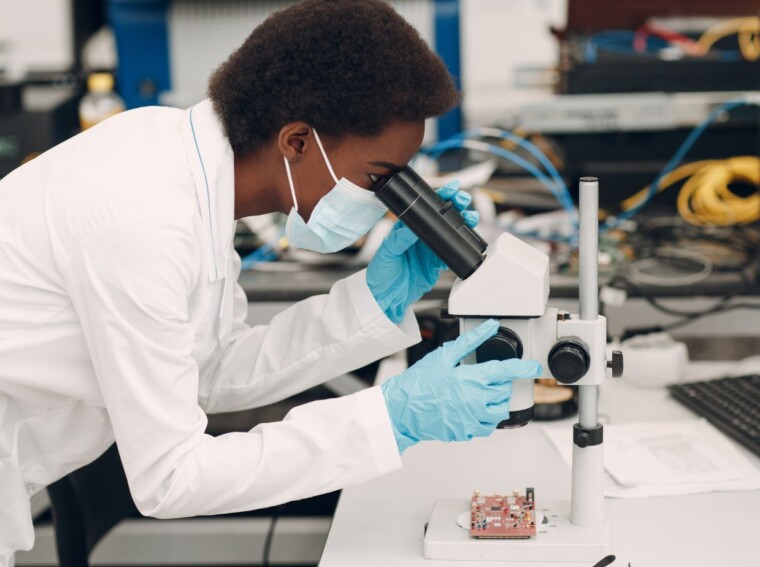What Instruments Made Scientific Discoveries Possible And Helped Ideas Spread Quickly
As a science enthusiast, I’ve always been fascinated by the instruments that have paved the way for groundbreaking scientific discoveries. From the humble microscope to the powerful particle accelerator, these tools have revolutionized our understanding of the world around us. In this article, I’ll explore some of the key instruments that have played a crucial role in scientific breakthroughs throughout history.
From Galileo’s telescope to the Hubble Space Telescope, instruments have allowed us to peer into the depths of the universe and unravel its mysteries. These technological marvels have not only expanded our knowledge of the cosmos but have also provided us with breathtaking images of distant galaxies and celestial phenomena. Join me as I delve into the realm of astronomical instruments and discover how they have shaped our understanding of the universe.
Early Scientific Instruments
The Lens And Telescope
When we think of scientific instruments, one of the first that comes to mind is the lens. The invention of the lens revolutionized our understanding of the universe. With the development of powerful telescopes, scientists were able to observe celestial objects and make groundbreaking discoveries. Telescopes allowed us to see far beyond what the naked eye could perceive and helped us unlock the secrets of the cosmos.
The Microscope
In addition to telescopes, microscopes have played a vital role in scientific discoveries. Microscopes allowed us to explore the microscopic world, revealing the intricate details of cells, microorganisms, and other small structures. This breakthrough instrument enabled scientists to make significant contributions to fields such as biology and medicine. Through the lens of a microscope, we gained a deeper understanding of life’s building blocks and the complexities of the natural world.
The Thermometer
Another instrument that contributed significantly to scientific progress is the thermometer. By measuring temperature, thermometers provided scientists with valuable data that allowed for the development of theories and the understanding of physical phenomena. With the invention of the mercury-in-glass thermometer by Fahrenheit in 1714, we were able to accurately measure temperature changes and further our understanding of thermodynamics. This breakthrough greatly impacted fields such as chemistry, physics, and meteorology.
The Barometer
The barometer is yet another instrument that made significant scientific discoveries possible. Invented by Evangelista Torricelli in the 17th century, the barometer allowed for the measurement of atmospheric pressure. This breakthrough instrument provided crucial information for understanding weather patterns and predicting changes in atmospheric conditions. By analyzing pressure readings, scientists were able to develop the field of meteorology and make advancements in weather forecasting.
The Pendulum Clock
Lastly, the pendulum clock played a crucial role in scientific discoveries by providing a reliable method of measuring time. With the invention of pendulum clocks by Christiaan Huygens in the 17th century, scientists could accurately measure time intervals, leading to advancements in fields such as physics, astronomy, and navigation. The precise measurement of time facilitated experiments and allowed for more accurate observations.

Precision And Accuracy
The Chronometer
One of the key instruments that made scientific discoveries possible and revolutionized navigation was the chronometer. As a precise timekeeping device, the chronometer played a crucial role in accurately determining longitude at sea. Developed in the 18th century, it allowed sailors to calculate their position with unprecedented accuracy.
Before the invention of the chronometer, determining longitude while at sea was a complex and error-prone process. However, with the introduction of this innovative instrument, sailors could now calculate their longitude based on the difference between the time at their current location and the time at a known reference point, such as Greenwich, England.
The Sextant
Another instrument that greatly impacted scientific discoveries and facilitated accurate measurements was the sextant. The sextant was a vital tool for celestial navigation and played a significant role in mapping the Earth and understanding its position in relation to celestial bodies.
By measuring the angles between celestial objects, such as the Sun and stars, and the horizon, the sextant allowed sailors to determine their latitude with high precision. This was crucial for accurate navigation, as it provided a reference point for plotting their position on maps and charts.
Conclusion
Throughout history, a wide range of instruments have played a crucial role in enabling scientific discoveries. From telescopes and space telescopes that have allowed us to explore the vastness of the universe, to instruments like the mass spectrometer and electron microscope that have revolutionized our understanding of chemistry and matter, these tools have been instrumental in advancing our knowledge. The impact of these instruments on scientific progress cannot be overstated. They have expanded our understanding of the universe, helped us unravel the mysteries of the natural world, and provided the foundation for countless scientific breakthroughs. As we continue to push the boundaries of knowledge, these instruments will undoubtedly play a vital role in shaping the future of scientific discovery.
